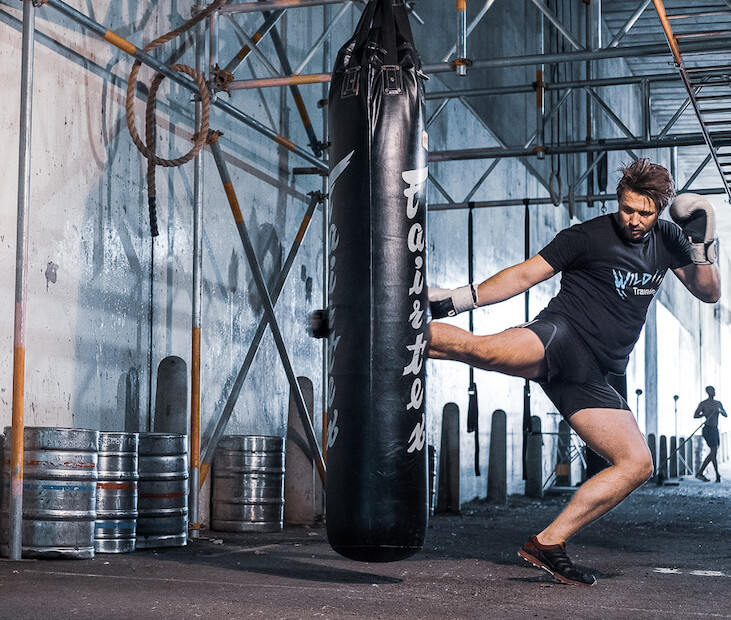MF’s strength expert James Griffiths waxes lyrical about the body and mind benefits of combat sport and MMA training…
My training often sits in one of three camps: strength training, bodyweight exercise, or sport (and in particular, MMA). The latter is invaluable for fitness, so it’s something you should always build into your routine.
That’s largely because there are so many actions and movements in sport that aren’t perfect. There is a lot of value in that chaos.
Challenging your body outside of the clinical ‘perfect’ form strength training so many people pursue in the gym can be a really valuable way of exposing weaknesses in your chain. Ultimately, it can progress your fitness level.
And when it comes to choosing your sport, I don’t think there are many that are as complete in terms of conditioning as mixed martial arts (MMA).
To perform at a good level in MMA you need to have solid endurance, strength, power, flexibility, speed and skill.
That’s a lot of boxes to tick, especially when you consider how technical the MMA-specific skills training is. It also explains why even at the professional level, you don’t see anyone who is the best at everything.
You can’t be the best striker, the best grappler, the fittest, the fastest, or the strongest all at once. That’s one reason why it’s such an exciting sport to watch, because very rarely do two fighters have the same attributes or style.
Strength and conditioning benefits of MMA training
But even if you have no interest in entering the ring and competing, there are serious strength and conditioning benefits to be had from incorporating some combat training into your programme.
If you’ve ever tried to move a heavy sandbag, you’ll know just how challenging it is. Now imagine trying to manoeuvre a person who weighs the same as you (who also happens to be trying to manoeuvre you at the same time).
The aim is to overcome your opponent’s strength and technique with yours. This is fundamental to grappling sports like Brazilian Jiu Jitsu, wrestling and MMA.
Developing your conditioning and mobility with combat sports will only compliment your other strength training. And most martial arts deliver more than just the obvious strength, endurance, flexibility benefits.
They heighten your body awareness and improve your balance and reactive ability. The different disciplines all become an incredible mental workout.
Find more articles about sport
Mental benefits of combat sports
You’re forced to think quickly and act on your feet in response to your partner’s movements. You must also remain calm and controlled when you find yourself in a defensive situation.
You will end up building resilience and a can-do practical attitude on and off the mats. For many, combat sports provide an outlet for the stresses of daily life.
When you step on the mat, everything else is put to the side for a moment, while both your mind and body are engaged in learning.
To highlight that last point about the mental health benefits, in any situation where I believe one of my clients is in a bad place my-go to workouts will be MMA for fitness or lifting something heavy. Most of the time it’ll be a combination of the two.
Teaching someone how to throw me off an MMA cage wall in-between striking rounds never fails to get people back to the present and moving forward with better energy.
It might be the last thing you want to do when you’re low. But trust me, a physical intervention to an emotional down is the only real solution I know.
Finally, unlike many other sports and physical activities, combat sport is unique in that it can genuinely be done by anyone. Jiu Jitsu was designed and developed so that a smaller, weaker person can defend themself against, or even defeat, a larger and stronger opponent.
So regardless of age, size, gender or physical limitation, any person can utilise the techniques and principles of combat sports. You’ve just got to start.








